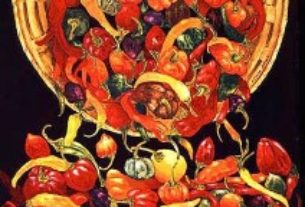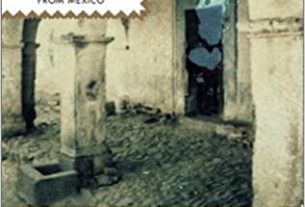Following a policy of keeping the boys and the girls seperated, Martita and Vidal seldom saw each other at school. It must have been some comfort just knowing that the other was close by. Marta’s dormitory was upstairs in a long building along the side of the complex. The bottom floor served as classrooms. There were maybe thirty girl students.
Vidal became an acolyte of the church. One of his duties was ringing the large bells for early Mass. This job often required waking up at three or four in the cold morning. On his way to the bell tower he had to pass a dark foreboding cemetery, which at first terrified him. However, he gradually became accustomed to it and eventually confronted it with quiet bravado.
Another of Vidal’s early morning chores was to crank-up the old gasoline generator which furnished lights for the complex. Sometimes, after many pulls on the cord, he would feel heavy of heart with impending failure. Then the old machine would cough, and then fire up, and then there would be light. Vidal would walk away with a sense of pride and accomplishment.
Padre Julio Flores was in charge of the school, the adjoining church, and the other churches in the parish. Two other priests assisted him with the outlying churches.
Padre Julio was around 82 years old. He was thin and tall with grayish hair and a large patrician nose. He was often seen walking slowly along the stone paths, in his long black cassock (which he always wore), slightly bent forward, with his hands clasped behind his back.
Padre Julio had a reputation for being a stern disciplinarian and at first Martita was terrified of him. However, as fate would have it, she somehow worked herself into the heart of this stern old man and they became special friends. Martita was bright, playful, somewhat impish, but loving. Padre Julio had an affliction, he could not keep his hands still. They were always moving spastically. Sometimes she would take his hands and hold them firmly between hers and they would be quiet, which always pleased him. At other times, as he sat in the sun on his favorite bench, she would massage his tired old shoulders or playfully scratch his head. She came to call him uncle and he responded by calling her niece. In the month of May, in honor of the Virgin Mary, the girls gave offerings of flowers. Padre Julio permitted Martita to cut flowers from his private garden and she was the envy of all her classmates.
Martita kneeled on the front row with her hands pressed together in pious prayer-like fashion. Out of the corner of her eye she glanced to see if Padre Julio, who was administering holy communion, was noticing how good she was being. Out of the corner of his eye Padre Julio glanced at Martita to see if she was behaving herself.
For a young girl, mass and Rosarios, were painfully long. The girls routinely asked permission to go to the bathroom to escape for a short while. On one such break Martita decided to visit the bee-hives. As she was accustomed to doing, she poked a stick into the hive and removed it with the end covered with delicious honey, which she savored. After she ran back and took her place she was aware of a buzzing sound under the rebozo which covered her head. In panic she jumped up and ran out of the church, without asking permission. Another time she had climbed one of the stone arched abutments to play on top of the church roof. She ran into a nest of wasps which pursued her as she, in terror, backed herself down the abutments and ran to the safety of the church.
Although stern, Padre Julio was also a man of compassion and justice. If a humble peasant came into town to sell his meager produce to the school, Padre Julio would invite him into his private dining room for refreshments or a meal. There was a demented woman who roamed the streets of this small town in ragged and soiled clothing. Father Julio took the responsibility to see that she was fed and had a small shelter. The only time Martita had seen him violently angry was a time when some of the boys were jeering at this poor woman. She raised her skirt, exposing herself, and they threw rocks at her. Father Julio lashed them with a leather whip. To Martita, Padre Julio did not lack physical strength. It was not beyond him to carry a heavy cross through the streets in long religious processions.
Angelito came to work for Padre Julio as a young man. His first language is Nahuatl but he now speaks Spanish equally well. His duties were mostly cooking and helping to prepare for festivals. A father-son relationship developed between them. Angelito came to address Padre Julio as ” Tata” which in the Nauhatl language is an affectionate term for “father”.
At the end of Martita’s third year of school Padre Julio’s health began to fail and he was hospitalized in Puebla. Marta visited him with her mother, wearing a plain dress with a pattern of small colorful flowers. Padre Julio was very pleased with her dress and told her she should wear it always. He died shortly after their visit.
Padre Julio was replaced and everything changed. The new priest had the old gnarled fruit trees removed. Padre Julio’s lovely garden was neglected and his plants withered. The peasants from the hinterland were spurned and the unfortunate woman of the streets was shunned. The school was closed. The new priest was a womanizer who got into financial trouble and fled to the hills pursued by a pistol packing posse of parishioners. The church took umbrage to this action by its members and issued an edict that in the future they would no longer have a permanent priest. To this date the edict has held.
Angelito stayed on as caretaker and still is in charge of making preparations for church festivals. The old school buildings have been allowed to deteriorate.
However, there is talk of restoring everything and possibly making San Francisco Ixtacamaxtitlan a national monument. Although the church is now over 375 years old, the only evidence of it honoring any person connected with the church, is a plaque located at the entrance below the dedication stone, which reads, in part, “Julio Flores F….in appreciation of your 30 years of dedicated pastoral service.”
There is also an alcove, or chapel, within the church, dedicated to Father Flores. A large portrait of him hangs within.
Marta and I have now been married for 13 years.
We occasional visit San Francisco, usually accompanied by Vidal who is now a director of a small school. With Angelito, they affectionately relive old memories of their school days, with a touch of sadness.


